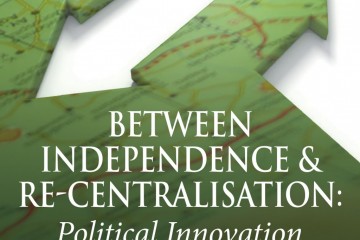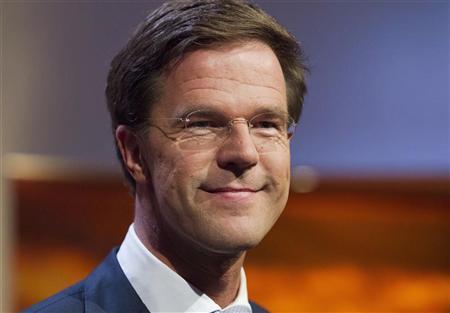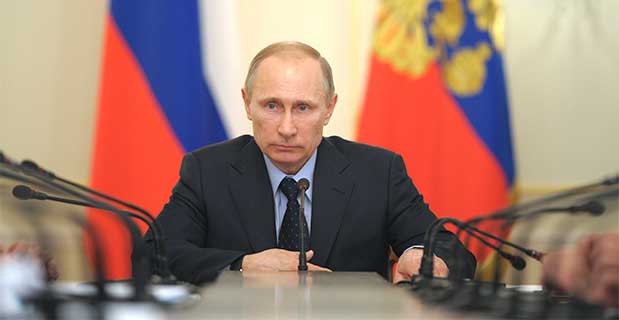
Is federalism a viable option in Spain?
The Spanish state has been suffering from a deep crisis for several years, as Basque and Catalan claims for the ‘right to decide’ have clearly illustrated. Thus, it’s hardly surprising that the federalist option has been rediscovered as a way to solve the problems of the ‘State of Autonomies’. Is federalism a realistic solution?
To answer this question, two aspects should be considered: 1) the potential of federalism as a solution to the specific problems linked to national pluralism; and 2) the viability of federal reform in Spain.
1. Federalism and national pluralism
Federal studies have been considerably revived over the last 20 years and have abandoned some of their former beliefs or convictions. Federalism is not a panacea for solving problems of national pluralism in democratic contexts. Nor is federalism is a project necessarily concerned with national diversity (see Seymour and Laforest 2001: 9-10). This renewal has been greatly motivated by the difficulties encountered in advanced democratic systems (Canada, Belgium, Spain, to give a few examples) to reconcile deep diversity with the specific demands of the democratic principle. That is what Carl Schmitt already referred to in 1928 (2003: 356) when he emphasized the necessity of (existential) cultural and political homogeneity to ensure the stability of federal states. Empirical evidence confirms the German jurist’s theory. The great majority of federations, including those which started with important cultural and political diversity, evolved towards a form of Unitarian federalism which, in its fundamental aspects, eventually adopted the shape of the dominant State, the Nation-State (one State, one people). Schmitt refers to this federal form as ‘the federal State without federal bases’ (2003: 368). In the most recent specialized literature calls this type of federalism ‘territorial federalism’, that is to say a way to organize the political power of a single people or nation from a legal and territorial point of view (otherwise known as a monistic theory of federalism; see Karmis and Norman 2005: 3-17).

How to run TV debates in a multi-party system
Today, the people of the Netherlands vote for their provincial governments. On face value, the Dutch middle legislative tier has limited powers. However, the results of these elections will also determine the composition of the Eerste Kamer, the Netherlands’ legislative upper house. Elections are also simultaneously held for the Water Board, arguably the most important institution in the Netherlands given its responsibility for water levels, dyke planning and maintenance and other such responsibilities that keep the population’s feet dry. All in all, it’s an important day at the polls.
According to modern conventions, important elections require a TV debate between party leaders, but this is easier said than done in a political system where eleven parties (plus an assortment of regional parties and independents) are represented in the political system. The Dutch have arrived at an innovative solution, running a series of one-on-one mini debates featuring two party leaders at a time.
Last night’s ‘TV debate’ featured nine debates in total, each discussing a different topic, and each lasting a little less than ten minutes. The leaders of the six ‘main’ parties (VVD, PvdA, CDA, D66, SP and PVV) each had two opportunities to debate, while the leaders of the six ‘small’ parties (Green Left, Christian Union, 50+, Party for the Animals, Reformed Political Party and Independents) each had the chance to debate once. Topics debated ranged from energy policy to health insurance.

Secession and liberal democracy: the Catalan case
In Spain, the 1978 Constitution was the legal outcome of a political transition to a democracy, following the horrors of civil war and dictatorship. Among other things, it established a territorial model – the so-called “Estado de las Autonomías” (State of Autonomous Communities) – which was in principle designed to satisfy the historical demands for recognition and self-government of, above all, the citizens and institutions of two minority nations: Catalonia and the Basque Country. This territorial model occupies an intermediate position between the classic federal and regional models of comparative politics, but has more regional than federal features.
Yet thirty-six years later, many Catalan and Basque citizens and political and social actors show a deep disappointment regarding the development of this territorial model – in terms of collective rights, political recognition and self-government.
A movement for change
In recent years, support for independence has increased in Catalonia. Different indicators show that pro-independence demands are endorsed by a majority of its citizens, political parties and civil society organizations. This is a new phenomenon. Those in favour of independence had been in the minority throughout the 20th century. Nowadays, however, demands of a pro-autonomy and pro-federalist nature, which until recently had been dominant, have gradually lost public support in favour of demands for self-determination and secession. The following graph shows this recent trend.

Five flaws in Alexander Motyl’s recent assessment of realism in Russia and Ukraine
Last week, the Monkey Cage published a post by Alexander Motyl, a Ukrainian specialist at Rutgers-Newark, on the Five fatal flaws in realist analysis of Russia and Ukraine. Motyl claims that: “Realists want to have it both ways — arguing for and against rationality in general and in the Russian context in particular. Consistency can be reestablished, but only if realists finally agree that Putin is or is not rational and stick to one, and only one, interpretation.”
While he identifies some inconsistencies in American realist analysis of the Ukrainian conflict, his purported cure might be more damaging than the supposed disease. I have five particular points here, but in general, I claim that a more balanced perspective reveals that, while realism doesn’t have all of the answers, it is more potent than Motyl admits.

Nurture and nature: education, blood and nationality
On the 28th of October 1940 the Greek government rejected Benito Mussolini’s ultimatum demanding that Axis forces were given free entrance from neighbouring Albania and allowed to occupy strategic locations around the country. After the war, this momentous event in the history of modern Greece – popularly known as the No Day – became a national holiday, celebrated annually with impressive military and student parades.
Fourteen years ago, one such parade had to take place in a town near Thessaloniki. As a tradition, the best student in the local high school was expected to bear the Greek flag. The best student, though, was not Greek. He was an Albanian immigrant.
Pupils, parents and citizens throughout Greece rose in anger: despite his achievement, how could a non-Greek, an alien, a non-citizen at that, be allowed to carry the national colours? The government, the main political parties and the teachers’ union stood behind the excellent Albanian student but the boy responded to the growing commotion by choosing to step aside, allowing a Greek pupil to carry the flag.
Three years later, the same Albanian – having now distinguished himself as the best graduating student of his school – was again elected to bear the colours in the Greek national holiday parade. The public outcry, in this instance, grew even wider and sharper than earlier. The young man, for a second time, decided not to accept the honour but pass it on to a native schoolmate instead.
The volcanic public discourse surrounding these events had nationality, citizenship and ethnic origin at its centre. Blood, heredity, and even DNA, became salient elements of the debate – pitted against the qualities and achievements of the person, his or her social integration, active participation in and contribution to the Greek scheme of life. ‘What makes one truly Greek: one’s Hellenic outlook, behaviour and genuine belief in Greekness, one’s abilities and success in Greek society and/or one’s historical roots and genetic ancestry?’ was a question resounding loudly across the country and the region. Is it nature or nurture, a cocktail of the two, or perhaps something greater than that, which makes us genuine sons and daughters of a country, a nation or a people?
The perennial echo of this problem was picked up by the then president of the Greek Republic who, in defence of the Albanian student, quoted a line from a famous work by the great Athenian rhetorician Isocrates. “[Athens]”, the ancient man of letters writes in his Panegyricus, “has brought it about that the name Hellenes suggests no longer a race but an intelligence, and that the title Hellenes is applied rather to those who share our culture than to those who share a common blood”.

The Metropolitanisation of Nationality? City-regions, autonomy and the territorial state
The recent plebiscite on Scottish independence has triggered a much wider debate in the UK about the organisation of state power in institutional and territorial terms.
In particular, the role and economic position of the main cities vis-à-vis the state have raised headlines about ‘cities going independent’, such as ‘Devo Met’ (The Economist, 25 Oct 14). This not only continues the strong focus on the economic dimension of statehood and its territorial and institutional manifestation, but also that of identity and the sense of community (commonality). No longer, so it seems, does nationality operate automatically through the ‘nation state’ as a territorial and governmental entity. Instead, metropolitanism is encouraging, perhaps requiring, a ‘reterritorialisation of politics’ (Sellers and Walks, 2008). This growing emergence of an urban (metropolitan) dimension to national (and international) discourses on shared values, imaginations and common purpose has come to challenge the nationalisation thesis formulated as part of ‘political modernisation’ (Hofferbert and Sharkansky, 1971), and its primary focus on territorial states as expressions of an existing and cohesive civil society, or as ‘nationalisers’ seeking to shape a national identity (Brubaker, 1995). This once prevailing thesis propagates national contexts as dominant, hegemonial conditioning factors which reach across states, including regional and local identities and discourses, whether urban or not. The understanding of nationality has thus been viewed from a top-down perspective of discursive nationality, and corresponds with the territorial view that cites, being down the scalar hierarchy from the state, are automatically an integral part of that – bigger – entity – geographically, institutionally and discursively.
Such, in effect, triple hierarchisation – where territory, institutional power structures and discourse of identity and belonging (communality) sit in parallel hierarchical arrangements – is now being challenged by a growing urban/metropolitan voice stepping out of the seemingly homogenous sonority of a national discursive ‘backcloth’. This may appear as a reverse step to the integrative, even homogenising, effects of nationalising politics (Caramani, 2004), seeking to overcome spatial and societal differences in identities and sense of belonging. From such a (conventional) perspective, states are seen as the ‘natural’ rallying points of national discourses of self-determination and their geographic manifestation.

Between Independence & Re-centralisation: Political Innovation in an Age of Devolution
In 2014 the push for devolution became a major political issue. Scotland remains in the UK, but only after last minute bargaining devolved further powers to Holyrood. This has encouraged calls for more devolution of powers to Scotland, Wales, Northern Ireland and for the formation of an English parliament. George Osborne’s Autumn Statement proves that Westminster is listening. Meanwhile, MPs and local governments want more powers entrusted to local authorities. Manchester is following Bristol’s lead in appointing a mayor.
The UK is not alone in this trend. Emboldened by the experience in Scotland, Catalonia held an independence vote of its own, even if unrecognised by the government in Madrid. Legal or not, that vote may also boost efforts in the Basque Country, Bavaria and Flanders.
While these votes may prove unsuccessful, the tension surrounding them will linger. The issues depend on the contextual consequences of the increasing trend towards devolution. There are two forces operating in two different directions: on the one hand, city/regional small nations are demanding Independence from their referential nation-states, while on the other hand, nation-states themselves are re-centralising or decentralising their structures and powers.
Over the coming months, this Special Series will focus on the diverse angles to this debate by identifying and emphasising certain innovative and thought provoking case studies for the purpose of comparison.
Posts will cover topics like the re-scaling of nation-states, constitutional change, the right to decide, independence movements, the federal EU hypothesis, the Europe of Regions approach, democratic participation and civic nationalism in relation to city-regions.

When the mafia acts like the state. Quantifying the (bad) effect of Italian organised crime on safe waste disposal
The phenomenon of organised crime in Italy is intrinsically connected with social development and is a powerful brake on institutional performance. The power of the organised crime lies in its involvement into seemingly legal activities and in the control exercised over entire economic sectors through systematic extortion and violence.
Since the early Nineties, southern regions in Italy have experienced chronic issues of illegal disposal of urban waste, mainly due to easy access to uncultivated land, presence of caves and sovereignty of mafiosi – to use a general definition that encompasses mafia, camorra, ‘ndrangheta and other networks. When combined with inherent weakness of local administrations that turn a blind eye to illicit trafficking of waste, this poses a serious threat to local welfare, health and agriculture.
In Italy, waste management is a public service funded by revenue from waste taxes. The operational part – collection, treatment and landfilling – is performed by private companies or subsidiaries, which compete in public tenders. The regional authority, via a regional commission, sets an average value for the price of landfilled waste, while local waste operators set site-specific gate fees. It follows that the waste operator gains higher profit from the combination of higher prices and larger quantities of treated waste. Net economic benefit from waste management depends on private costs of landfill establishment, operation, and health and environmental standards; hence it is not unreasonable to say that private costs are lower if the waste operator deviates to illegal disposal – an option offered by mafia.
This generates a loss of economic efficiency; the rent from waste management activities entirely accrues to criminal networks, which often infiltrate in the tender system and bid comparatively lower prices.









